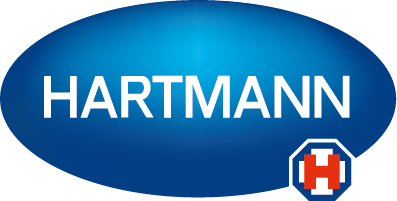Delia Muir

Delia is the co-lead for the Pressure Ulcer Prevention at Home Project. She also facilitates the Pressure Ulcer Research Service User Network (PURSUN). She is recognised nationally as a public involvement and engagement expert and has helped to shape best practice in the field.
She has a particular interest in participatory and creative approaches to research, which she explored during a prestigious Wellcome Trust Engagement Fellowship
Presentation at The Society of Tissue Viability 2023 Conference
The pressure ulcer prevention at home study – a participatory approach
Objectives
After attending this session, persons will have a greater understanding of:
- Participtory approaches to health research
- The real life benefits and challenges of participtory approaches
- Methods used in the Pressure Ulcer Prevention at Home study
- Some of the factors which help / hinder pressure ulcrer prevention at home, based on early data from the study
Abstract
Delia Muir on behalf of the Pressure Ulcer Prevention at Home Team
Aim: To understand what interventions people need to spot and manage pressure ulcer risk at home. Focusing on:
- People with long-term neurological conditions (LTNC) which impact movement, who self-manage care and live at home.
- Their informal carers (e.g. family members and friends).
- Their paid Personal Assistants (PAs).
Background: People with LTNC often self-manage their care and can fall between the gaps in complex health and social care services. There is a lack of pressure ulcer prevention support for this group. Currently, many people do not receive support until after an ulcer has occurred. People with LTNC, their carers and PAs are often uniquely placed to spot and respond to pressure ulcer risk. Despite this, they are underrepresented in pressure ulcer research and education.
Methods: This is a participatory project, meaning it is led by people who have personal experience of the issues being explored. Service users, carers and PAs are involved in or leading all aspects of this study, working closely with the University of Leeds. It’s split into 4 work packages:
1 – Forming co-operative inquiry groups (research groups) with service users, carers and PAs.
2 – Peer to peer interviews and data collection via a mobile phone app.
3 – Workshop with strategic partners from health and social care and third sector organisations.
4 – Systems mapping and theory of change development.
Impact: Findings from this study will inform the development of resources to support pressure ulcer prevention at home.
Presentation at the WReN Scientific Meeting, Glasgow, May 2022
Involving service users and carers in priority setting
Objectives
After attending this session, persons will be able to:
- Provide people with an understanding of the underlying principles of patient and public involvement
- Provide practical examples regarding how to involve patients and the public in research development
- Explore the pros and cons of different approaches
Abstract
It’s considered good practice to involve service users and carers in the prioritisation and development of research questions. There are different ways to approach collaborative research prioritisation, ranging to large scale national projects (e.g. the James Lind Pressure Ulcer Partnership) to individual researchers / teams working with local service users. This presentation will explore the pros and cons of different approaches and share examples from work with the Pressure Ulcer Research Service User Network (PURSUN).
PURSUN is made up of people with experience of pressure ulcers or pressure ulcer risk (service users, carers and family members). Network members draw on their experiences to inform research and practice. The pressure ulcer team at Leeds Institute of Clinical Trials Research have worked extensively with PURSUN over a number of years and projects. This relationship has allowed us to develop research ideas in an ongoing, iterative manner. For example, data interpretation workshops with PURSUN illuminated gaps in current research and informed new projects.














